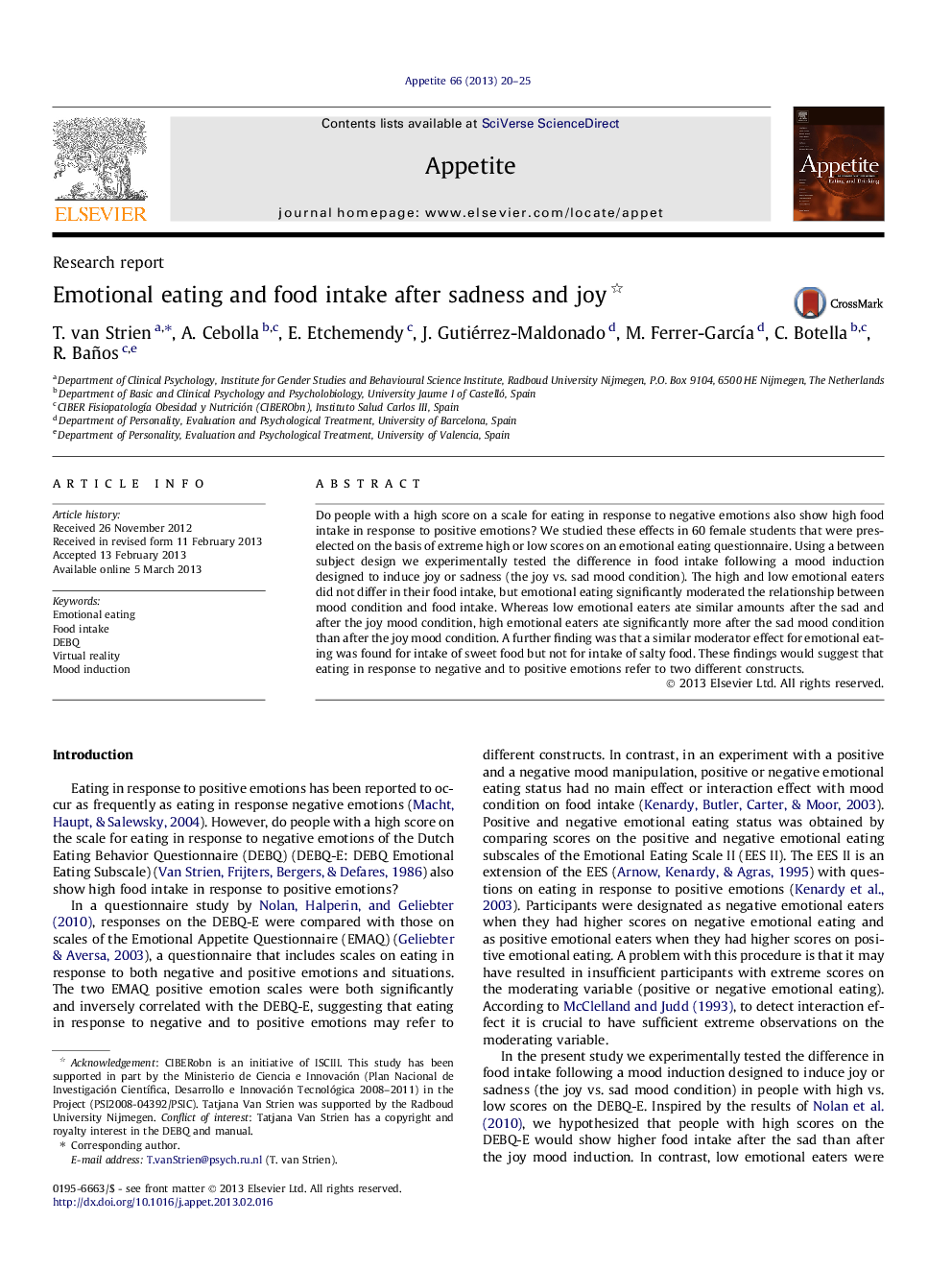| کد مقاله | کد نشریه | سال انتشار | مقاله انگلیسی | نسخه تمام متن |
|---|---|---|---|---|
| 939636 | 1475414 | 2013 | 6 صفحه PDF | دانلود رایگان |

Do people with a high score on a scale for eating in response to negative emotions also show high food intake in response to positive emotions? We studied these effects in 60 female students that were preselected on the basis of extreme high or low scores on an emotional eating questionnaire. Using a between subject design we experimentally tested the difference in food intake following a mood induction designed to induce joy or sadness (the joy vs. sad mood condition). The high and low emotional eaters did not differ in their food intake, but emotional eating significantly moderated the relationship between mood condition and food intake. Whereas low emotional eaters ate similar amounts after the sad and after the joy mood condition, high emotional eaters ate significantly more after the sad mood condition than after the joy mood condition. A further finding was that a similar moderator effect for emotional eating was found for intake of sweet food but not for intake of salty food. These findings would suggest that eating in response to negative and to positive emotions refer to two different constructs.
► Food intake of DEBQ emotional eaters after joy vs sadness.
► Do high DEBQ emotional eaters also eat more after joy?.
► No: high emotional eaters only ate significantly more sweet food after sadness.
► Eating in response to negative and to positive emotions refer to two different constructs.
Journal: Appetite - Volume 66, 1 July 2013, Pages 20–25